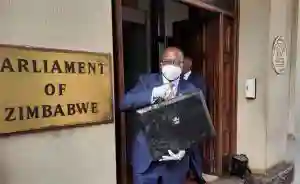Zimbabwe Confederation of Public Sector Unions president Cecilia Alexander has said Finance and Economic Development Minister, Mthuli Ncube must pay civil servants a minimum of US$540 in 2023.
Alexander’s remarks come as Ncube is set to announce the 2023 national budget this Thursday at the new Parliament building in Mt Hampden, Harare. Alexander told NewsDay:
To stalk inflation, Ncube must ensure that servants earn a minimum salary of US$540 in 2023. We are looking at a budget that will give employees a living wage, one that is reflective of the cost of living, and we want a budget that will bring currency and exchange rate stability. The minimum wage and poverty datum line are there, but we should understand the need for civil servants to retain their status in the community.
Since 2019, public sector workers have embarked on periodic strikes demanding restoration of the pre-2018 salaries that were in the range of US$540.
Economist Prosper Chitambara said Zimbabwe has not been investing adequately in critical sectors such as public health, water and sanitation, social protection, and education. He added:
As a result, donors have been coming on board to plug in the huge financing gaps in those sectors. In terms of taxation, we expect Ncube to do something to alleviate the huge tax burden. Zimbabwe is one of the most taxed economies in the world. You see this in the pricing of basic commodities like fuel, which is the highest in the region.
The budget is presented at when poverty is deepening, inequalities widening between the rich and the poor; public debt is soaring, and the climate change crisis intensifies, Zimbabwe Coalition on Debt and Development (Zimcodd) said in a weekly report issued on Tuesday.
ZIMCODD also noted the need to bring tax relief measures to the “overtaxed citizens including scrapping or reducing the regressive 2% intermediated money transfer tax.”
ZIMCODD also said the budget must address the ballooning debt burden currently estimated at US$17 billion.

